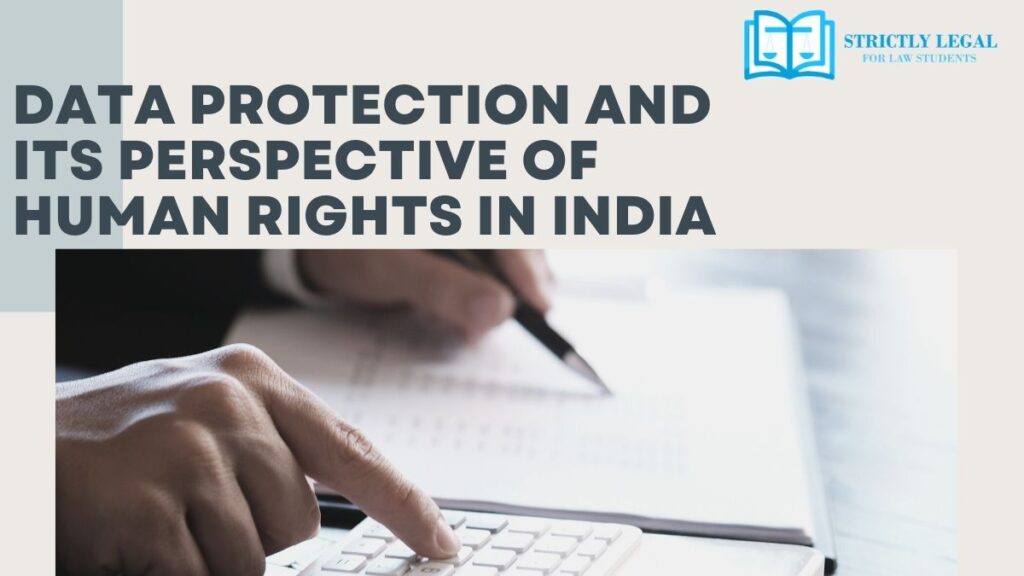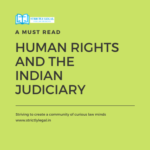Data Protection or the Right to Privacy is a fundamental right incorporated in numerous constitutions across the globe including in India. The concept of the Right to Privacy is multifarious. It is one of the most needful and basic rights mentioned in the Constitution of India. However, when it comes to Data Protection, personal information is a newly formed wealth of the country. It may be the wealth of a person that can be converted to monetary value to others if not appropriately regulated by the owner. Personal Information is a Pandora’s box of data which is rapidly growing and not to mention the profit of the Corporate world from this sector. Such information is also considered an asset to the company since it is quite obvious that after the leakage of personal data or after the data becomes a commodity, none can fetch or regulate the data from the market in the later stage. Here personal information is not only confined to someone’s details or credentials but it can also be someone’s habits, personal interests, medical or educational records, bank statements, regarding family or children etc. Developments in the technological sector make the personal information of anyone public with the tip of fingers.
Table of Contents
Understanding the term ‘Privacy’
There occurs an indivisible issue between the Right to Privacy and Data Protection. However, the concept of Data Protection of Laws plays a pivotal role in the world. There have not been any pro bone formulae for Privacy and Right to Privacy, nonetheless, they have been explained by various circumstances as per the situation demands. The thing of Right to Privacy can also be put in a way of The Right to be Let Alone. On the other hand, privacy refers to the conventional relationships between persons or groups.
Understanding Data Protection
The European Union (EU) has a very well portrayed definition for the Data Protection. The mechanism of Data Protection should be in a way that the information regarding any person must not be accessed or available to any other person or organization. Basically, a chunk or a different set of information if collected would lead to the revealing of the identity of a particular individual, which is called as personal data, may it be a name or a surname, email address or residential address etc.
A law incorporated to shield such a data is called Data Protection, which enables us to regulate one’s data and shield it from any terms of abuse in modern societies. Data Protection Laws control and prevail against the activities of the companies that try to mess with the information or the data hampering someone’s Right to Privacy.
Need for Data Protection
When any particular individual buys or even just serfs about any product over the internet, or to visit a doctor via registering a mail, pay taxes or whatsoever, one’s personal information is disclosed as it is necessary for the time being to provide the same. Sometimes, even without the belief and knowledge of the person concerned, their personal information is circulated and sometimes updated over the internet without any prior communication with the person. In order to protect their own credentials which from getting stolen, duplicated or anything else, the citizens of the country, as well as the consumers, have a belief and faith in the Data Protection Laws as it will lead to effective and strong legislation to prevent the data from getting exploited.
In earlier times, the information technology capabilities, government and the corporate businesses used to store and keep a record of each and every personal information of people approaching them in their database, which, unfortunately, could be accessed or searched, edited or altered by anyone around the world. After many of such cases got reported, it became an actual cause of concern for people whose data are getting revealed on a global platform without their knowledge.
Data Protection Under Indian Laws
The Constitution of India specifies provisions like Freedom of Speech and Expression, as mentioned in Article 14 and the right to life and liberty under Article 21. These mentioned articles have an effect and importance on the Right to Privacy as a fundamental right that is guaranteed under Part III of the Constitution of India. There are several statutes which throw light on the topic Right to Privacy as a fundamental right.
In M.P Sharma and Ors. v. District Magistrate, Delhi, the Honorable Apex Court contended Right to Privacy to be a fundamental right for the first time in India. In the case, search and seizure warrant was issued u/s 94 and 96 of the Code of Criminal Procedure respectively and the same was challenged. It was contended by the Honorable Court that search and seizure warrant was not constitutionally invalid or not in contravention of any provision mentioned in the Constitution of India.
Followed by the very famous case of K.S. Puttaswamy v. Union of India, the issues and dilemma regarding the right to privacy were gone once and for all where the issue arose for the Aadhar Card Scheme. In this case, the collection and compilation of the biometric and the demographic data of the citizens were challenged as they were used for some different purpose that is anyway a violation of Article 21. The Honorable Apex Court here, contended “that right to privacy is integral and indivisible from the human element in a human being and the depth of human dignity.” Hence, finally, for the justice to be delivered, it was contended that the Right to Privacy is a fundamental right under Article 21 of the Constitution of India.
Conclusion
Privacy is a basic human right and the automated computed data that keeps a record of all the personal information is sensitive and naïve. It is the need of the hour to provide an effective legislation for all the personal information to not be duplicated or exploited by anyone on any platform, since, it is a well-known fact that with the development of technologies and the modernized society, comes the polished and modern form of crimes.

Law student.
Turning legal insights into engaging narratives.





